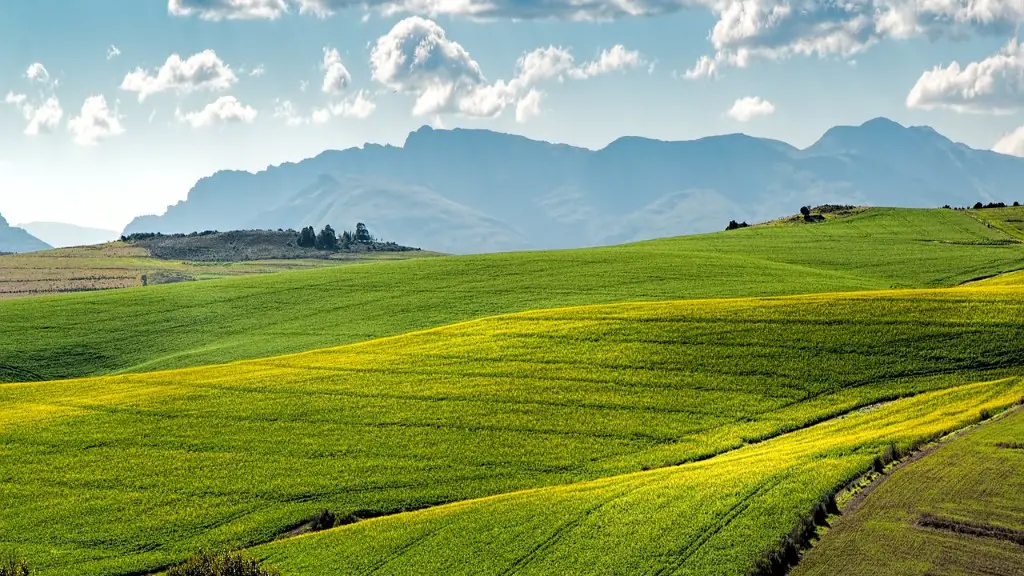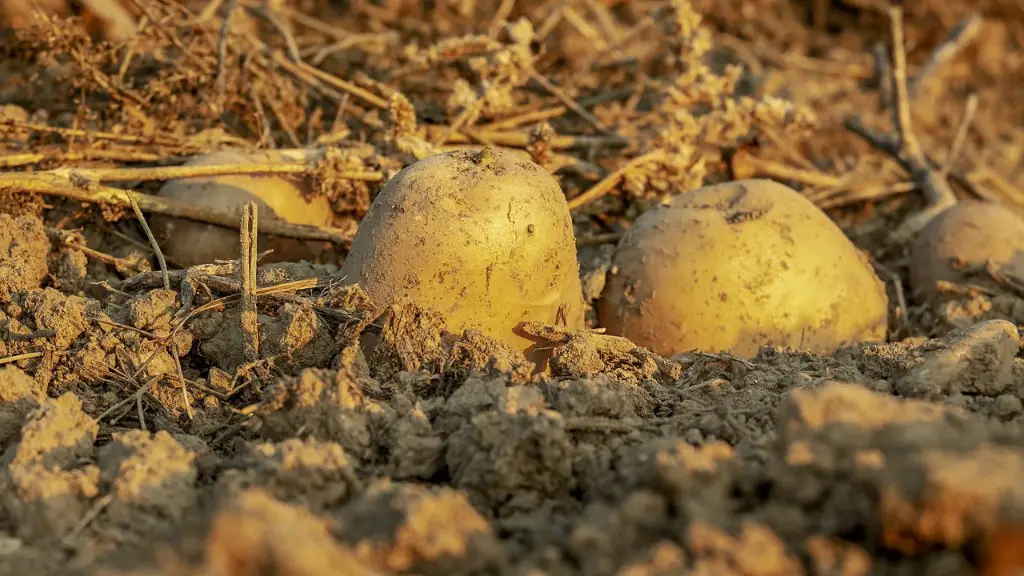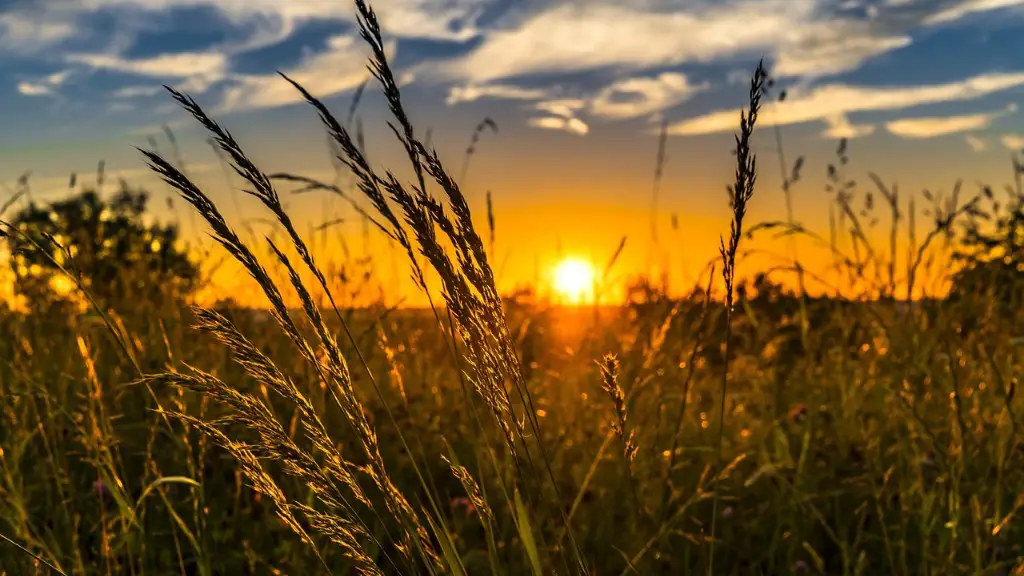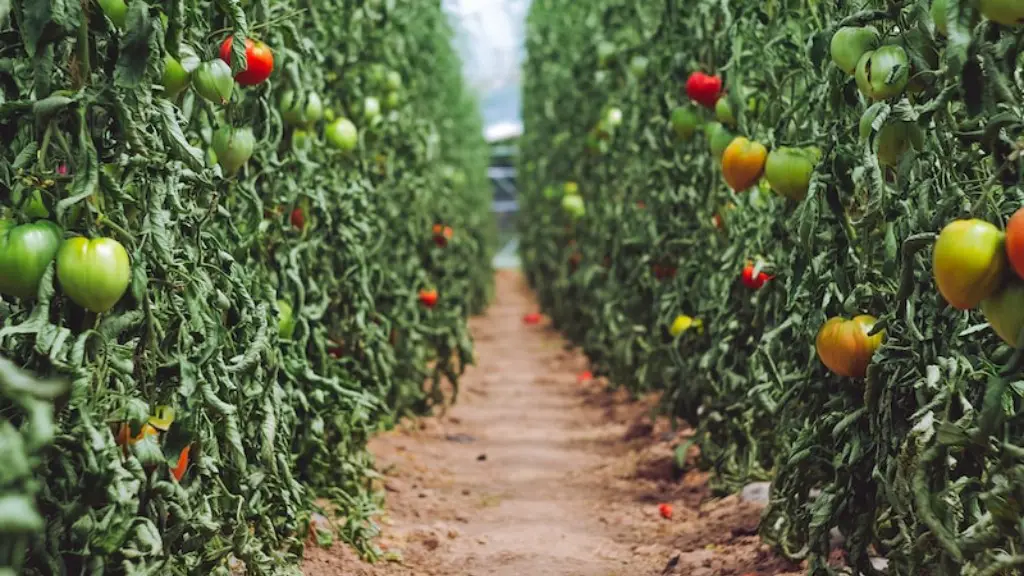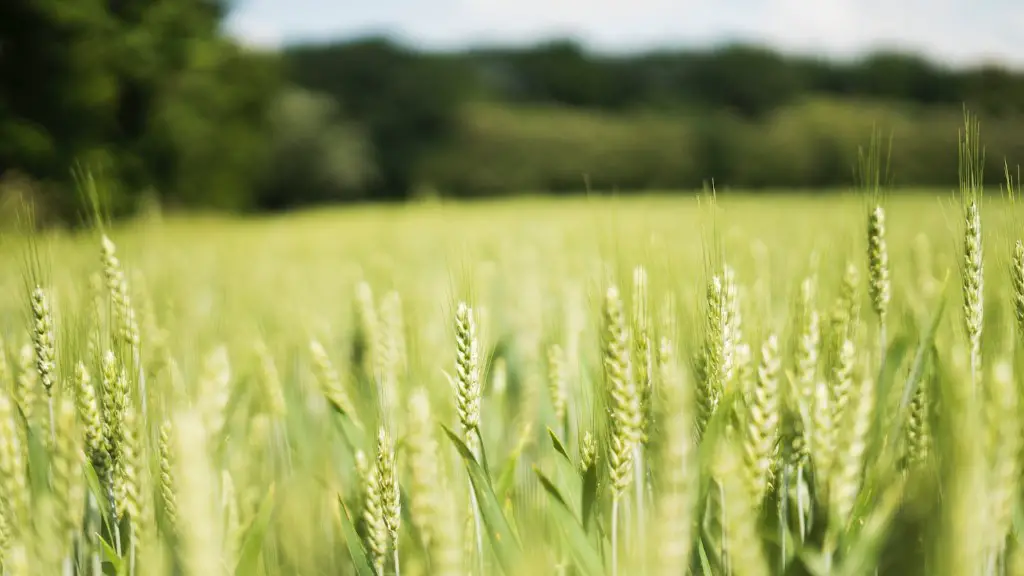Agriculture is the science, art and practice of cultivating plants and livestock. Agriculture was the key development in the rise of sedentary human civilization, whereby farming of domesticated species created food surpluses that enabled people to live in cities. The history of agriculture began thousands of years ago. After gathering wild grains beginning at least 105,000 years ago, nascent farmers began to plant them around 11,500 years ago. Pigs, sheep and cattle were domesticated over 10,000 years ago. Plants were independently cultivated in at least 11 regions of the world. Agronomy, crop science or agrarian science is the science and technology of producing and using plants for food, fuel, fibre, and land reclamation. Agronomy encapsulates work in the areas of plant genetics, plant physiology, meteorology, and soil science. Agronomy is the application of a combination of sciences like biology, chemistry, economics, ecology, earth science, and genetics.
Agricultural science is the study of food production, food security and soil management. It includes the study of how to improve crop yield, protect against pests and diseases, and understand the impact of climate change on agriculture.
What is the meaning of science in agriculture?
Agricultural sciences encompass a wide range of disciplines dealing with the production of food and fibre. These include the technologies of soil cultivation, crop cultivation and harvesting, animal production, and the processing of plant and animal products for human consumption and use.
Agricultural sciences play a vital role in ensuring the world has enough food and fibre to meet the needs of a growing population. They also play an important role in protecting and improving the environment, and in developing sustainable production systems that are less reliant on inputs such as water, fertilizers and pesticides.
Agricultural Science is a broad program that exposes students to agriculture in terms of the sciences as well as the economic and social science disciplines that are integral to the industry. Some aspects that students are exposed to include agricultural production, soil and water conservation, research, and business. The program provides students with a well-rounded education that will prepare them for a career in the agricultural industry.
What are examples of agricultural sciences
Sustainable agriculture is a type of agriculture that is practiced with the goal of sustaining the natural environment, protecting the land, and ensuring the long-term viability of agricultural practices. Integrated pest management is another type of agriculture that seeks to minimize the use of pesticides by using a variety of techniques to control pests. Genetics, soil science, plant science, animal science, and food science are all important disciplines that contribute to the goal of sustainable agriculture. Business management and international agriculture are also important aspects of sustainable agriculture.
If you’re wondering if agriculture is a good major to pursue, the answer is absolutely yes! While it isn’t completely necessary to have a degree in agriculture to land many agriculture jobs, it can place you in a better position and opens up other possible opportunities in the industry.
Is agricultural science hard?
Agricultural science students need to work hard in order to achieve an honour. According to the data, one-third of higher-level students have not managed to achieve an honour over the past three years. The honours rate was 66 per cent last year, which means that 10 per cent of students achieved an A2 or higher.
Each of these branches of agriculture play an important role in the overall production of food and other agricultural products. Livestock production is responsible for raising and caring for animals that are used for meat, dairy, and other products. Crop production is responsible for growing and harvesting crops that are used for food, animal feed, and other purposes. Agricultural economics is responsible for studying and managing the production and marketing of agricultural products. Agricultural engineering is responsible for developing and applying technology to improve the efficiency of agricultural production.
How many years does it take to study agricultural science?
If you’re interested in a career in agriculture, a BSc in agriculture will give you the skills and knowledge you need to get started. The course will typically last three or four years, although you may be able to study applied research to a doctoral level. Many courses are closely linked to local industries, and some even have a micro-farm on site for students to get hands-on experience.
The Agriculture & Forestry industry provides the food and resources that are necessary for people to live. It is therefore vitally important for the world’s population. If your dream is to help alleviate world hunger, then a degree in this sector is a great start. With your help, we can make sure that everyone has enough to eat and that resources are used sustainably.
Do you need math for Agricultural Science
For admission into most BSc programmes, both Life Sciences and Physical Science will be required; however, there are some programmes where only one of these will be needed. The admission requirements for each programme will vary, so be sure to check the requirements for the programme you are interested in. In general, a higher performance level in Mathematics will be required for admission into most programmes.
A career in agriculture can be immensely rewarding, both personally and professionally. Agricultural degrees prepare students for a wide range of careers, from farm management and agronomy to food science and international development.
There are a number of different types of agricultural degrees available at the baccalaureate level, each with its own focus and area of study. Agroecology degrees, for example, focus on the sustainable management of natural resources, while food systems degrees explore the complex relationships between food production, distribution, and consumption.
Environmental sciences/studies degrees also have a strong focus on sustainability, but with a broader focus that includes the study of ecosystems, pollution, and climate change. Biological sciences degrees provide a more general foundation in the life sciences, while animal science and nutrition & food sciences degrees focus specifically on the production and processing of food animals and crops, respectively.
International development degrees prepare students for careers in NGOs, government agencies, and private businesses that work in developing countries. And finally, dietetics, nutrition, and food sciences degrees focus on the science of human nutrition and the practical application of dietary guidelines.
No matter what type of agricultural degree you pursue, you can be sure that you will emerge with a deep understanding of the
What branch of science is agriculture?
Agriculture is a vital part of society and has been around for centuries. It is the process of growing crops and raising livestock for food, fiber, and other products. Agriculture plays a significant role in the economy, providing jobs for millions of people around the world.
The best global universities for agricultural sciences according to rankings are as follows:
1. Jiangnan University
2. South China University of Technology
3. University of Massachusetts Amherst
4. Zhejiang University
5. Nanjing Agricultural University
6. Cornell University
7. University of California Davis
8. Universidade de Sao Paulo
What’s the highest paying job in agriculture
The agricultural industry offers many high-paying jobs for those with the right skills and experience. Agricultural engineers design machines and equipment to be used on farms, while agronomists focus on the science of growing crops. Veterinarians provide care for farm animals, and winemakers create and oversee the production of wine. Farm managers are responsible for the day-to-day operations of a farm, and agricultural sales representatives sell products and services to farmers and other agricultural businesses.
No, BSc Agriculture is not easy. You will experience some difficulties during your study, but there are several job options available to you after completing a BSc in agriculture. So, if you are truly interested in agriculture, it is not difficult.
Does agriculture make good money?
The best agriculture jobs can pay up to $100,000 per year. agriculture science and engineering careers focus on soil, plant life cycles, irrigation, or farm machinery You could also work in this industry as a livestock veterinarian.
Farmers use mathematical skills and science in their day-to-day farm activities. For example, farmers use mathematical skills to estimate the seed amount needed, the cost to plant their crop based on the area of cultivable land they possess, to purchase equipment or tools needed and make payments for various purchases. In addition, they use science to develop new farming technologies and techniques, to understand the soil and water quality on their farms, and to monitor the weather patterns in their area.
Warp Up
Agriculture science is the study of the principles and practices of agriculture. It includes the study of the soil, crops, and other plants that are grown in agricultural systems. Agriculture science also includes the study of animal husbandry, which is the care and management of livestock.
Agriculture science is the study of how to optimize the production of crops and livestock. It includes research on cropping systems, animal husbandry, soil science, and water management. Agricultural scientists work to develop new ways to increase crop yields, improve animal health and productivity, and to conserve natural resources.
